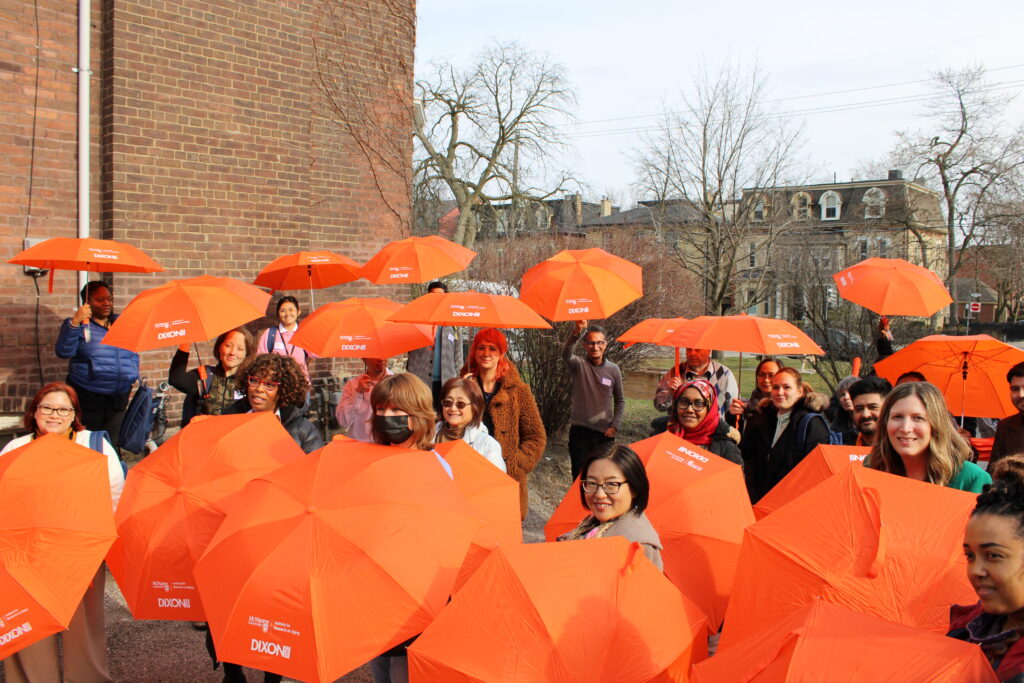Valued at $70,000 over one year, Knowledge Synthesis Grants aim to increase knowledge mobilization through synthesis of existing evidence and use of co-design strategies to share the knowledge with end-users and stakeholders. Research teams identify knowledge gaps and opportunities for future work related to themes — including loneliness, social isolation and emotional well-being; and housing and aging-in-place — identified as priority areas in consultation with staff, leadership, and other stakeholders from Dixon Hall, a multi-service agency focused on addressing poverty, social injustices, and isolation across the lifespan in downtown Toronto East. Since 2021, the MIRA | Dixon Hall Centre has been connecting community-based client care and innovative research programs centering on marginalized aging and older adults.
A team of MIRA researchers, led by the St. Joseph’s Health System Centre for Integrated Care (Chi-Ling Joanna Sinn, Andrew Costa) and the Gilbrea Centre for Studies in Aging (Anthea Innes, MIRA postdoctoral fellow Constance Dupuis) seek to identify potential directions for the future design, implementation, and evaluation of Dixon Hall’s rooming house initiative, which, beginning in 2018, tasked Dixon Hall and partners with the reimagining of 23 rooming houses in Toronto.
The project, titled Dixon Hall’s rooming house initiative: Scoping the design and implementation of social housing in Ontario to inform priorities and practice, aims to advance Dixon Hall’s vision of creating a less isolated, more supportive and more inclusive living environment for over 200 existing (and future) tenants. By identifying goals, gaps and opportunities, and developing valuable parallel context through collaboration with Hamilton’s Juravinski Integrated Residential Care Initiative, the project aims to inform and enrich understanding of affordable housing challenges across contexts and communities.
“Although the links between housing and health are well-established, there is much to be done to support people’s access to housing and supports to maintain housing.” notes co-Principal Investigator Chi-Ling Joanna Sinn. “Our research team is excited to work with Dixon Hall to translate their vision for a more supportive rooming house model into a comprehensive and evidence-based roadmap for the Rooming House Project. Importantly, this roadmap will be the informed by the everyday experiences of Dixon Hall staff and tenants.”
A second project, led by MIRA member Brian Detlor along with member Tara La Rose and McMaster Business Librarian Ines Perkovic, titled The promotion and sustainability of digital literacy skills for marginalized older adults examines, synthesizes, and mobilizes knowledge around digital literacy skills for marginalized older adults as a means of addressing this population’s loneliness, social isolation, and emotional well-being.
The project aims to better understand the factors that impact the successful delivery of digital literacy skills training to marginalized older adults, and to identify innovative approaches to mobilize this knowledge, including a proposed event at Dixon Hall and use of MIRA-supported tools and networks like the Optimal Aging Portal and Voice Canada.
MIRA | Dixon Hall Knowledge Synthesis Grants work to increase impact of aging research with the communities it serves. Says Detlor, “This award will greatly support my work to understand best practices in the delivery of digital literacy training to marginalized older adults. The award will also provide me with a unique opportunity to co-design and develop innovative training solutions and strategies that address the digital skills learning needs of this equity-deserving group.”
Congratulations to both projects!

